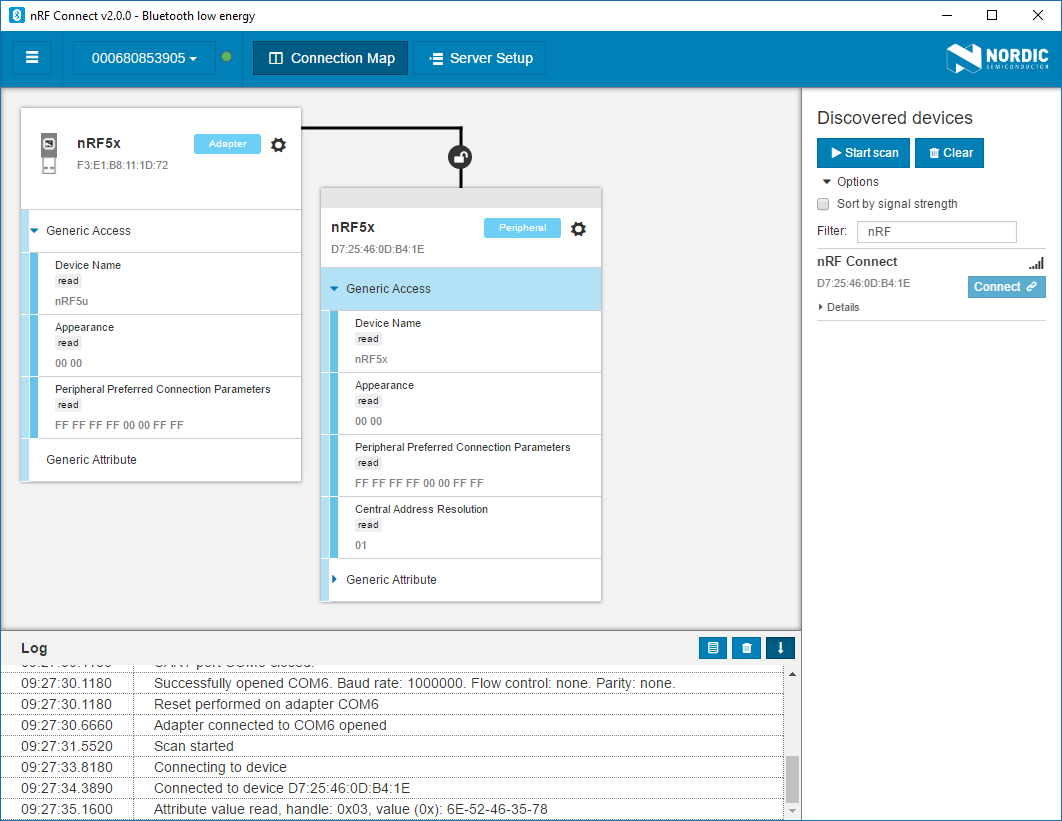nRF Connect Bluetooth® Low Energy is a cross-platform tool that enables testing and development with Bluetooth Low Energy (previously called Bluetooth Smart). It allows easy setup of connections with other devices and use these connections for reading and writing to the external nodes.
nRF Connect Bluetooth Low Energy is implemented as an app for nRF Connect.
The app supports the following devices:
- PCA10028 nRF51 Development Kit
- PCA10031 nRF51 Dongle
- PCA10040 nRF52 Development Kit
- PCA10056 nRF52840 Development Kit
- PCA10059 nRF52840 Dongle
To install the application you can download binaries from the nRF Connect product page on Nordic Semiconductor web pages.
nRF Connect currently supports the following operating systems:
- Windows
- Ubuntu Linux 64-bit
- macOS
After nRF Connect is installed, you can find Bluetooth Low Energy in the app list by selecting Add/remove apps.
A User guide is available on the nRF Connect Bluetooth Low Energy product pages.
Feel free to file code related issues on GitHub Issues and/or submit a pull request. In order to accept your pull request, we need you to sign our Contributor License Agreement (CLA). You will see instructions for doing this after having submitted your first pull request. You only need to sign the CLA once, so if you have already done it for another project in the NordicSemiconductor organization, you are good to go.
Since nRF Connect expects local apps in $HOME/.nrfconnect-apps/local (Linux/macOS) or %USERPROFILE%/.nrfconnect-apps/local (Windows) directory, make sure your repository is cloned or linked there.
To build this project you will need to install the following tools:
- Node.js (>=6.9)
- npm (>=5.6.0) / yarn (>=1.4.0)
When nRF Connect have been installed, you are ready to start the compilation. Run the following command from the command line, standing in the root folder of the repository:
npm install
When the procedure has completed successfully you can run the application by running:
npm run dev
The built app can be loaded by nRF Connect launcher.
Unit testing can be performed by running:
npm test
See the license file for details.
- Ask questions on DevZone Questions
- File code related issues on GitHub Issues

